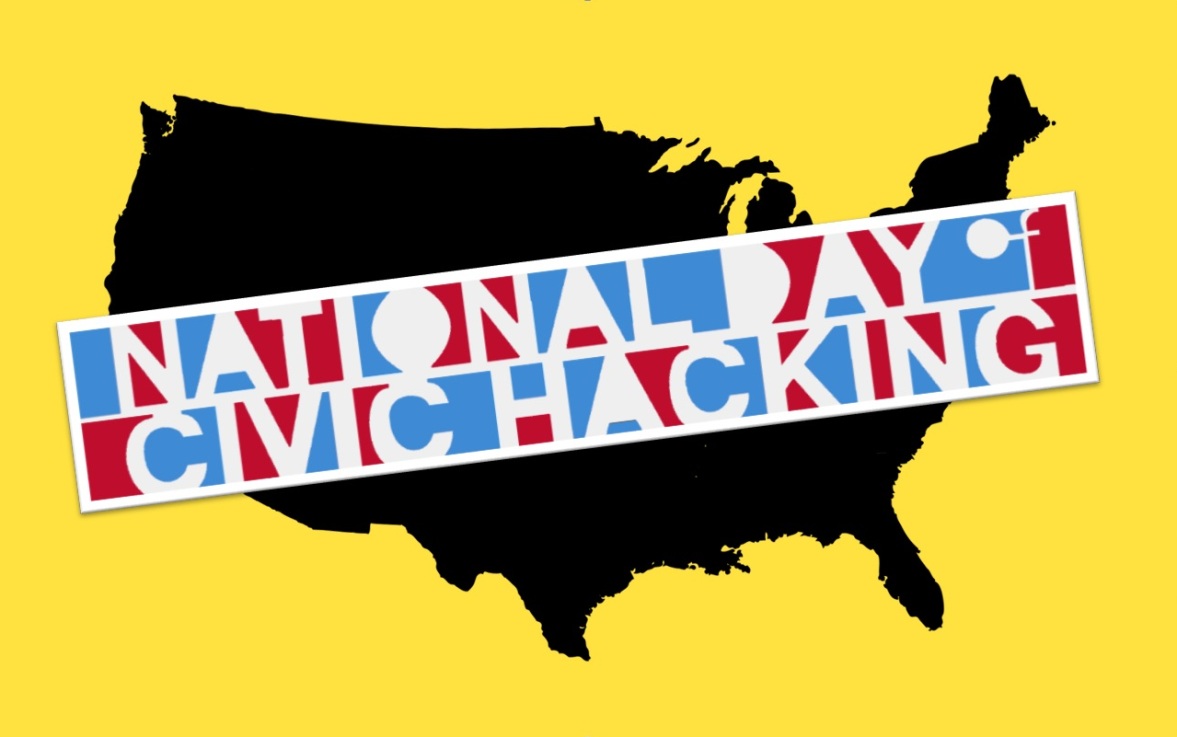The National Day of Civic Hacking (#HackForChange and #NDoCH) is a very modern form of citizen participation. Coordinated by Code for America, the day is a playground for people who want to improve their communities through creative technology applications.
This past weekend, thousands of people met up in 100 cities to collaboratively use their skills for good. National Day of Civic Hacking events drew diverse crowds of developers, programmers, technologists, and data scientists, but also government employees, nonprofit professionals, subject matter experts, community managers, project managers, designers, writers, journalists, marketers, creatives, and local residents.
Here are how just some of those cities took the first steps to turn great civic innovation ideas into reality during the 2016 #HackForChange.
Atlanta, Georgia
Civic hacking was a techie treat down in the Big Peach. Teams tackled a wide range of issues including building an API out of IRS data on nonprofits, building a Census map visualization tool, an app to connect farmers with available yards and lawns, helping students track volunteer hours, and mapping local historical sites. Gratification came almost instantly at Atlanta’s event, with the map of Atlanta’s historical places (built using mapsfor.us, a creation of Code for Atlanta) already available to curious explorers.
Making maps of historical sites in Atlanta #HackforChange pic.twitter.com/LqQ8Hzy5yZ
— Code for Atlanta (@codeforatlanta) June 4, 2016
San Francisco, California
Techies in the San Francisco Bay Area have a reputation for eagerly embracing new technology. Virtual reality is one of the newest, yet seems destined to be more than a trendy tech bauble. Early experiments indicate that virtual reality can go a long way toward changing people’s behavior and increasing empathy.
So, it’s no surprise that one of the local National Day of Civic Hacking teams chose to experiment with virtual reality as a tool to educate people about a new health concern: the Zika virus. During the National Day of Civic Hacking, the team was able to collect immediate user feedback on their prototype that could help inform future virtual reality projects.
Enjoying learning about #ZikaVirus via #VirtualReality w @nirshuk @SFbrigade #hackforchange pic.twitter.com/YXi1HaGCJR
— Jesse Biroscak (@jbiroscak) June 5, 2016
Washington, D.C.
The nation’s capitol buzzed with multiple gatherings for the National Day of Civic Hacking. One of the D.C. events—hosted by the U.S. Census Bureau, the Small Business Administration, the Department of Commerce, and others—focused on innovations for financially vulnerable microbusinesses.
Ideas ranged from matching prospective microbusiness owners with mentors, to helping former inmates reenter the workforce, to the misleadingly simple process of making sure microbusinesses get paid:
Ru guys ready2get paid? #cashflow #biz @SBAgov @codeforamerica @secondmuse #hackforchange #NationalDayOfCivicHacking pic.twitter.com/TyXtLT6KAg
— Kristen Honey
(@khoney) June 4, 2016
Orlando, Florida
Not every civic problem that needs fixing is sexy. Government manages many mundane yet necessary parts of civic life. Sometimes the less provocative problems that are the most intriguing ones to hack.
In Orlando, Florida, people worked on many ways to make the city better through technology. While the ideas for street art, walking tours, street trees, pet adoption, data on traffic citations at red lights, and city analytics were all inventive, it was the in-depth exploration of a person’s experiences during the local fence permitting process that really captivated participants:
Record for largest UX Journey Map? If not you need to take the crown @MattPLavoie #hackforchange #hackfororlando pic.twitter.com/gxcEDme6Up
— Joshua TechDev Walker | Venti Fried Chicken (@JWTechDev) June 4, 2016
Camden, New Jersey
Hacker teams in Camden, New Jersey had a more youthful energy. A local nonprofit, Hopeworks ‘N Camden partnered with city agencies, the U.S. Department of Housing and Urban Development, Esri, and others to involve local teens and young adults in coming up with solutions to help their community.
The day focused creating ideas around the Camden Promise Zone, a federal and city effort to boost the local economy and improve education. Teams used interactive story maps and open data to show people how the Promise Zone initiatives may affect the city.
#girlswhocode
#HackForChange @hopeworkscamden @codeforamerica @whitehouseostp #NationalDayOfCivicHacking #NDoCH pic.twitter.com/UW16f8QDcV
— Drew Amanda Zachary (@DrewAZachary) June 4, 2016
Did you take part in a civic hacking event in your community? Brag all about it in the comments.
Lauren Girardin is a marketing and communications consultant, writer, and speaker based in San Francisco. She helps organizations engage their communities and tell their stories. Her website is laurengirardin.com and you can connect with her on Twitter at @girardinl.





Here’s what Code for Tampa Bay Brigade did to Hack for Change: http://www.codefortampabay.org/news/17
Thanks for sharing, Terri.